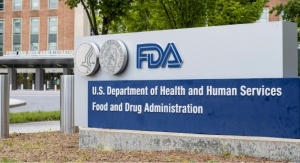This is Part I of a four-part series that will be released over the next four weeks. The overall intent of the report is to improve the industry’s ability to understand the FDA’s priorities when they perform inspections and to know which issues they are finding. The four parts and their content are as follows:
Part I – FDA District Activity
Part II – Part 111/cGMP violations
Part III – Label Violations & Disease Claims
Part IV – APIs & Report Summary
District Activity
The first topic is a review of District Office activity. In evaluating Warning Letters from companies in specific states it quickly became apparent that some States received far more letters than others. California (12), Florida (8), New York (6) and Puerto Rico (4) received the majority of Letters while the Southern States, Great Lake States and Northwest States didn’t receive any.
The Districts with the highest activity were Los Angeles (9) and Florida (9), followed by Kansas City (6) and San Juan, San Francisco, New York and Denver (5 each). If risk were based only on this information, companies in these Districts have a higher chance of receiving Warning Letters, whereas companies in other Districts may have a lower chance.
Inspection Categories
Inspections were segmented into four primary categories:
1) Facility – Physical plant or site;
2) Website – Disease claims;
3) Label – Product label violations; and
4) Laboratory Testing – Active Pharmaceutical Ingredients (APIs).
It was interesting to note that inspections were evenly distributed over the first three categories, Facility (48), Website (47) and Label (45) with most inspections covering multiple categories (i.e., both Facility and Website cited in a single letter). This shows the FDA took a broad approach to enforcement and did not focus solely on one category. There was (is) a tendency within the industry to focus only on Part 111/cGMPs compliance—and with good reason (they can be difficult to understand and implement). However, companies should not neglect the other regulations and requirements, such as Part 101 (labels) because FDA is enforcing those as well.
All of the letters issued by the Baltimore, San Juan and Silver Springs districts were limited to disease claims made on websites and labels while none were issued for facility inspections. This shows the FDA’s consistent activity on the Internet. The agency did not need to show up at a facility; it can simply review a company’s website and send a letter. Of the districts that issued letters, 17 out of 18 indicated a website and label review, while 16 out of 18 Districts issued letters indicating facility inspections.
Additionally, the FDA has extensive testing capabilities and issued 12 letters to companies whose products tested positive for Active Pharmaceutical Ingredients (APIs). Based on the data, the agency focused on products which have a high likelihood of adulteration (e.g., sexual dysfunction, weight loss and laxatives).
Violation Categories
Violations were placed into one of four categories:
1) cGMP – Part 111 (Adulteration);
2) Disease Claims – Claims that mitigate, diagnose, treat, cure or prevent a disease
3) Labels – Misbranding
4) Active Pharmaceutical Ingredient (API) – Products that contain a known drug
The Florida, Kansas City, Los Angeles, New Jersey and Philadelphia Districts issued Letters across all four primary categories.
Out of the 18 districts that issued letters:
15 – cGMP
17 – Disease claims
15 – Labels
6 – API
Looking at the types of violations cited by the Districts may help companies understand where efforts and resources should be focused.
Miscellaneous Categories
In addition to the primary categories, violations that fell outside the “norm” were also evaluated. The FDA and FTC jointly sent three letters to companies that (primarily) made Ebola claims. The agencies are aware of health trends in the U.S., and the recent Ebola scare is a recent example. It appears the agencies were monitoring the Internet and found companies that made products which targeted this disease. Needless to say, they took swift action.
Testimonials, which have traditionally been a lower risk, were cited in 12 of the 71 letters. The FDA treated testimonials as “labeling,” which means companies cannot post comments that indicate the product mitigates, diagnoses, treats, cures or prevents a disease. Because many testimonials have statements about diseases, companies should be aware that they (testimonials) were cited.
Shelf Life/Expiration Dates continue to be observed. It is interesting that none of the letters cited shelf life as a formal violation, but instead included observation in the “We also note the following…” statement at the end of the letter. This would imply that while the FDA prefers for the industry to have data which support an expiration date, because the requirement is not explicitly stated in the Part 111 or other regulations, the agency cannot enforce it. It will be interesting in the coming years to see how FDA enforces an expectation that is not supported by the Part 111 regulation.
Social Media
Excerpt from a Warning Letter:
“…the U.S. Food and Drug Administration (FDA) reviewed websites and social media accounts (e.g., Facebook, Twitter, and Pinterest)…”
This statement indicates the FDA reviewed claims and testimonials made on popular social networking sites, such as Facebook and Twitter. These channels have traditionally been safe-havens, however, 5 out of 71 (7%) letters stated the FDA inspected them. Although these channels have been cited in previous years, the FDA continues to expand its inspections to include all aspects of the Internet, including meta tags. Companies should be aware that FDA is broadening its inspection abilities and is venturing into places that were previously untouched.
This concludes Part I of the 2014 Warning Letter report prepared by Dietary Supplement Experts. The full report can be found at: http://dietarysupplementexperts.com
Andy and Curtis have more than 35 years combined experience in the dietary supplement industry. They have considerable experience developing Part 111 (cGMPs) regulatory compliant quality systems, labels that meet the requirements of Part 101 (design and claims) and new product development. Dietary Supplement Experts offers technical consulting services relating to dietary supplement labels, as well as comprehensive online training courses for FDA label compliance review and current Good Manufacturing Practices. Consulting services include label compliance review, graphic design, expert witness testimony, and ongoing support. For more information: http://dietarysupplementexperts.com




























